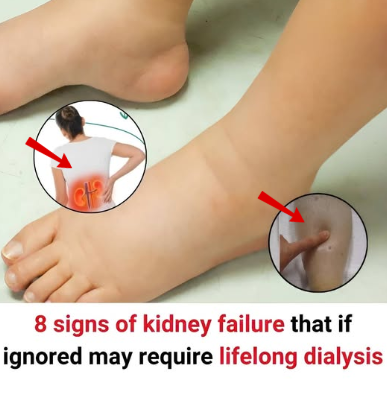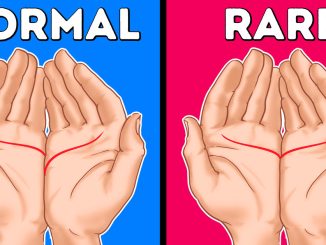
Kidney disease is one of those silent conditions that can sneak up on you if you’re not paying attention. Millions of people worldwide are affected, and many don’t even realize their kidneys are struggling until the damage is advanced. Your kidneys work tirelessly every day, filtering waste, balancing fluids, and regulating blood pressure. When they start to fail, your body doesn’t stay quiet—it sends signals. The challenge is recognizing these early warnings before it’s too late.
Understanding Why Kidneys Matter
Your kidneys are two bean-shaped organs tucked just below your ribcage on either side of your spine. Small but mighty, they filter about 120–150 quarts of blood daily, removing toxins, excess fluids, and balancing electrolytes like sodium and potassium. They also play roles in producing red blood cells and regulating blood pressure. When they function well, you hardly notice them. But when they’re in danger, your entire body feels the effects.
1. Changes in Urination
Your urine is often the first sign something’s wrong. You may notice you’re urinating more frequently, especially at night, or producing less urine than usual. Some people notice foamy or bubbly urine, which can indicate protein leakage—a red flag for kidney disease. Ignoring these subtle shifts can allow the damage to progress unnoticed.
2. Persistent Fatigue and Weakness
Ever feel drained even after a full night’s sleep? Kidney disease can cause anemia, a condition where your body doesn’t produce enough red blood cells. Without them, oxygen delivery to your muscles and brain slows down, leaving you exhausted, weak, and struggling to concentrate. It’s not just “being tired”—it’s your body begging for help.
3. Swelling in the Body
If your rings, shoes, or pants suddenly feel tighter, it may not just be weight gain. When kidneys don’t filter fluid properly, it builds up in tissues, leading to swelling (edema) in the legs, ankles, hands, and even the face. This fluid retention can make you feel puffy and uncomfortable, and it’s one of the clearer outward signs of kidney trouble.
4. Pain in the Lower Back
Back pain that sits just below the ribcage on one or both sides may actually stem from your kidneys. Unlike typical muscle aches, kidney-related pain often lingers, feels deep, and may come with tenderness. Infections or stones can intensify this pain, making it hard to ignore. If you’ve ruled out other causes, your kidneys could be the culprit.
Video : 17 Signs of KIDNEY DISEASE You Can See: Doctor Explains
5. Unexplained Weight Loss or Appetite Changes
Kidney disease interferes with how your body processes nutrients and waste. As toxins build up, many people lose their appetite, feel nauseated, or experience unexplained weight loss. If you’ve been dropping pounds without trying—or food suddenly seems unappealing—it’s worth checking your kidney health.
6. Nausea and Vomiting
Morning sickness isn’t just for pregnancy. People with impaired kidney function often report frequent nausea or even vomiting, especially after meals. This happens because waste that should have been filtered out lingers in the bloodstream, irritating your digestive system. Persistent nausea is your body waving a red flag.
7. Difficulty Sleeping
Struggling to fall asleep or waking up restless may be linked to your kidneys. Kidney disease can cause muscle cramps, restless leg syndrome, or frequent nighttime urination—all of which disrupt sleep. Poor sleep, in turn, worsens fatigue and overall health, creating a vicious cycle.
8. Metallic Taste in the Mouth
If your favorite foods suddenly taste off or you’re dealing with a constant metallic taste, your kidneys might be behind it. The buildup of urea in the blood can leave a foul or metallic flavor in your mouth, sometimes accompanied by bad breath. This symptom often goes unnoticed or mistaken for dental issues, but it’s a hidden clue about your kidneys.
9. Muscle Cramps and Twitching
Electrolyte imbalances are common when kidneys can’t maintain proper levels of calcium, potassium, and sodium. This can trigger painful muscle cramps, twitching, or spasms. While occasional cramps aren’t unusual, frequent and unexplained ones deserve medical attention.
10. Itchy and Irritated Skin
Healthy kidneys filter toxins out of the blood. When they stop doing their job, those toxins accumulate, leading to widespread itching. Unlike a localized rash, this itchiness tends to cover large areas of the body and doesn’t improve with lotions or creams. It’s your skin trying to tell you that your internal filter isn’t working properly.
Video : 7 Warning Signs That Your Kidneys Are Toxic
Conclusion
Kidney disease is often called a silent killer because its symptoms can be subtle at first. But your body does send warnings—changes in urination, fatigue, swelling, back pain, appetite loss, nausea, poor sleep, metallic taste, muscle cramps, and itchy skin are all signals worth noticing. By listening to your body and acting early, you can protect your kidneys before irreversible damage sets in. If you’re experiencing any combination of these signs, don’t wait—seek medical advice. Early action could make the difference between manageable treatment and serious complications.


